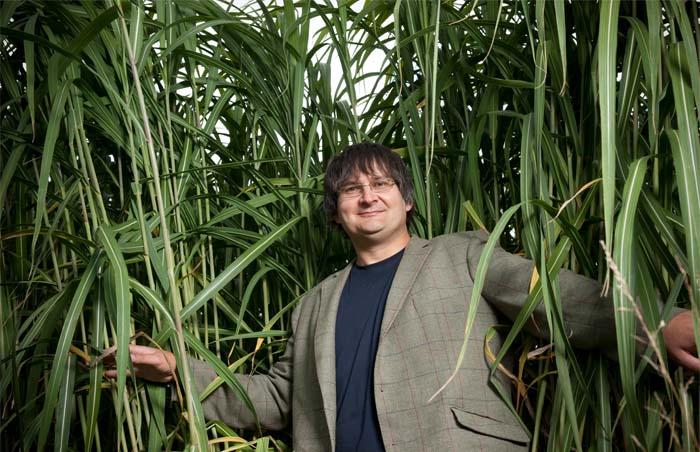
A Lincolnshire farmer has solved longstanding problems caused by bedrock and blackgrass by planting Miscanthus – and is now making consistent returns from previously unprofitable land through a termed contract with energy crop specialist Terravesta.
Edward Green, of Glentham, first trialled Miscanthus on his farm in 2010, when a field with clay-heavy land and a persistent blackgrass problem left him searching for a viable alternative to wheat. The energy crop was thriving a year later, prompting Mr Green to plant Miscanthus in two more of his problem fields – one of which had considerable bedrock. With 50 of his 370 acres of land now planted with the crop, he continues to reap the benefits of guaranteed financial returns year on year, as well as enjoying drastic savings on establishment and cultivation costs.
Mr Green, who also grows other arable crops including wheat, sugar beet and opium poppies on his farm, says: “The land in the first field was clay-heavy and ridden with blackgrass – which was so bad it had even built up a resistance to herbicides. The wheat originally planted there was producing very low yields, so I decided to see how Miscanthus would fare. The crop is still flourishing, and because it acts as a natural remedy to blackgrass, I no longer have to spend time, effort and money controlling the problem.
“In fact, my experience was such a positive one that I decided to plant the crop in two more fields in 2011. Like the first field, one of these had heavy land and blackgrass, so the switch to Miscanthus was an obvious one. The other had very light land, with insufficient depth for growing potatoes. It was also drought-prone, and was proving difficult to cultivate thanks to its plough-breaking bedrock. The Miscanthus here has grown particularly well. Within a year, it was 5.5 feet high and about as close to full establishment as you could get. By year two, it had soared to almost nine feet and I was reaping average yields of seven tonnes per hectare. Better still, it doesn’t need ploughing – which is a relief, as I’d much rather be farming for my own profit than that of the shear bolt manufacturer!”
Mr Green’s long-term, index-linked growing contract with Terravesta means he now enjoys the security of best-ever prices and profits from what had been problematic land. What’s more, he has seen his input costs fall notably.
He explains: “Most of my farm is contracted out, so I’m also now making significant savings on establishment costs. Miscanthus held the key to my problems and I’m very pleased I made the decision to plant. As a relatively new and unknown crop, it had its fair share of teething troubles in the early days, but Terravesta has changed all that. The team does extremely well at giving growers the reassurance they need, both by sharing valuable expertise and providing secure contracts.”
William Cracroft-Eley, Terravesta chairman, says: “I’m absolutely delighted that Edward’s Miscanthus has grown so well under what are undeniably challenging circumstances. His is a true success story, and proves the crop has the ability to thrive against the odds, in land where other crops struggle to produce viable yields. It’s also shown its worth by warding off a severe blackgrass problem, and has eliminated the need for cultivation in those fields. Edward’s case is further evidence that problem land can be made profitable – an important message for farmers experiencing the woes of poor yields coupled with an unpredictable wheat market.”
Terravesta is now offering best-ever prices and secure ten-year, RPIX-linked growing contracts. Its new Grower Fuel Loop scheme also offers contracted growers the unique opportunity to buy back heat as pellets at a heavily discounted rate – benefiting from a truly sustainable, homegrown biomass heating resource.
